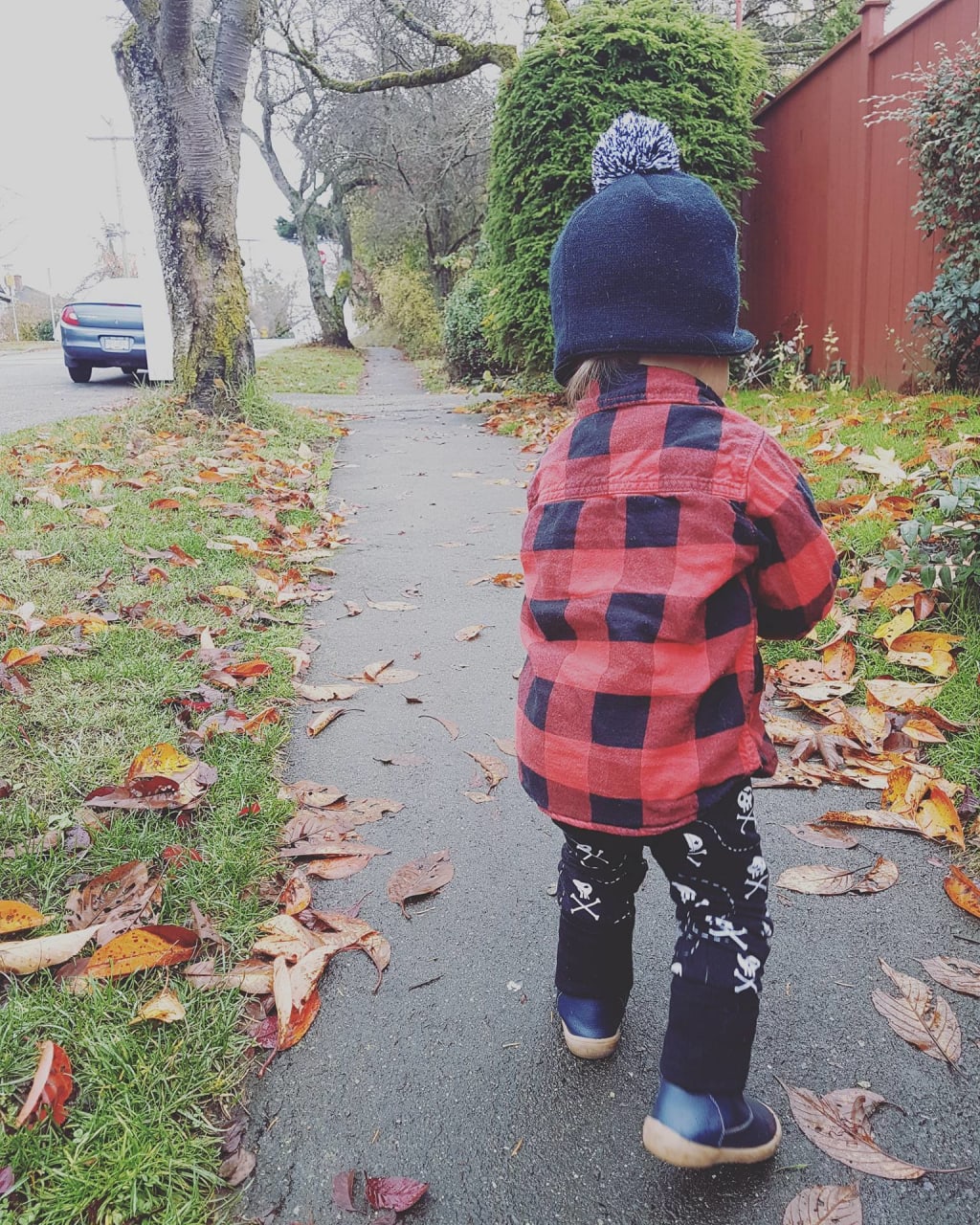The Voice of a Child
They said 'no,' now what?

I am a firm believer in not bubble wrapping my future children. This includes teaching them how to deal with a scraped knee following a natural consequence, to dealing with rude kids at the park, and even the concept of losing at a family or school activity. Now, notice as I said the word “future” children, making it pretty clear that I am not a parent yet. I am six weeks away from being one, and parenting is all I think about. Though no one has yet to call me “mum,” I have worked with children for close to a decade. Yes, I am aware that working with children is not the same as having my own, a fact that many parents have informed me of. However, I do believe that, through the school system, or child minding, or educational therapy, I have picked up a thing or two. I will never compare myself to a seasoned parent, one who juggles one, two, three, four or more children all the while running a house, working, being self-employed, starting up a business, going back to school, renovating a house, being a single parent, having a child with special needs, or any of the other countless things those superhero parents manage to do.
What I am saying, through my own experience, is that working with children has provided me with a different perspective; a perspective that makes it so I don’t feel quite as clueless walking into the new motherhood club. It has been my job to provide one to one undivided attention, to aid in socializing, and to teach skills of all sorts, including and not limited to: toilet training, trying new foods, teeth brushing, sharing, cleaning up, and playing with other kids. I am not a parent, but the connections I have made with kids over the years and the pride I have felt when they learn something new puts me close. I can be the one to answer the 100 “why” questions when the parent is ripping their hair out, I can be the one to tolerate the same song or show for the 17th time while the parent takes a break to appreciate silence. It has been my job to do those things—to step in and help when the parent is at their wit's end.
I have also learned that what a child’s behaviour looks like is not necessarily connected to what they are feeling. Whether they are three, six, ten, or fifteen years old, there are emotions rolling around in them that they can’t even grasp, let alone articulate to someone else. Maybe they aren’t being brats just for the sake of it, and maybe they aren’t doing it just to get under your skin. Most likely they aren’t even aware that you have feelings. All they know is their feelings and that there are a lot of them. I’m not a parent, but I know a thing or two. I know that talking to them like they are human beings with valid thoughts and opinions is important. I know that boundaries and consistency are absolutely key, but so is being silly and spontaneous with them. I know that when you give a child an option and they choose “no,” then that answer should be valid and respected. If you don’t want to hear "no" or it isn’t an option, don’t let it be one. Don’t phrase what you say in a way that allows “no” to be the response, especially if you plan to override that response anyway. Respecting “no” from a child does not result in a spoiled child, or one that runs the house. Instead, it teaches them that what they say matters, that they are being heard, and it creates a scenario where they are more likely to speak up in other situations. Regardless if they are two years old and don’t want to hug that aunt they only see twice a year or if they are thirteen and ask to be left alone after a particularly hard day at school, respect that. Respect how they feel, both physically and emotionally. Respect that, when it comes to personal comfort, they know their mind and body best, and no one should be allowed to bulldoze how they feel. It isn’t about you; they aren’t setting their own boundaries because they want to hurt your feelings. Kids know what they need and if they are given the opportunity to have it be heard and respected, that’s a good thing.
Even in the most simple of childhood activities, such as sharing, if a child has said no politely or that they want to play alone, why do we, as adults, decide that it's rude and tend to tell them to do it anyway? We don’t always have to share, nor do we always get our way, but if we politely decline to do something as adults, that decision is respected. Why is it any different with children? We need to teach them that there is a time and a place for compromise and manners. However, sharing their toys with a stranger on the playground shouldn’t be mandatory and it shouldn’t be seen as “rude,” either. Nor should hugging that family member they barely know be mandatory either, simply because it's polite. We can teach and model polite boundary-setting behaviour, and yet we overrule the comfort and voices of children for the sake of what? We don’t hug people we don’t know very well. If we set boundaries, others listen to them. Why is it any different with children? If a child’s “no” is consistently being stomped on and ignored, they learn that what they say or how they feel isn’t important. If a child is being bullied at school, or is being sexually assaulted, how do we expect them to have confidence in speaking up when every other polite “no” or sign of discomfort was ignored?
We need to do better by the children we raise today, regardless if you are a parent, grandparent, uncle, family friend, babysitter, educator, pediatrician, cousin, or the stranger on the playground who judges someone else’s child for not sharing with yours. We need to teach our children respect, in more ways than one, and that involves all of us.
About the Creator
Adrienne Amy
I'm a twenty-something with a good sense of humour about life and mistakes. I don't believe in regret but instead believe that every part of our experiences come together to make up the life we live, its the story we tell.







Comments
There are no comments for this story
Be the first to respond and start the conversation.